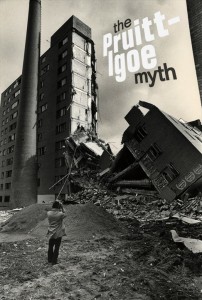By Tyler Craig
Housing advocates in Thompson are alarmed by a recent proposal by a group of business owners to push homelessness out of sight.
Last month, a group of business owners in Thompson sent a letter to Thompson Unlimited, the city’s economic development corporation, with a list of 15 recommendations on how to deal with homelessness in the community. The proposal included ideas such as moving the homeless shelter to the outskirts of the city and reducing the size of the sign on the shelter. The short sightedness of these business owners is further reflected in asking “Does one ever consider that this [homelessness] may be by choice”.
By Colin Anderson
Download PDF
Small farm owners Pam and Clint Cavers were blindsided on August 28, 2013 when Manitoba Agriculture, Food and Rural Initiatives (MAFRI) staff showed up to “seize and destroy” their locally produced and cured prosciutto (pork).
Ironically, just months ago, MAFRI presented the Cavers with $10,000, naming their prosciutto the “Best New Food Product” in the Great Manitoba Food Fight competition.
Pam Cavers neatly summed up the Province’s approach to supporting local food, “With one hand they giveth and the other they taketh away.”
By Josh Brandon
“It began as a housing marvel. Two decades later, it ended in rubble.”
 In 1972, the St Louis Housing Authority put dynamite to the massive Pruitt-Igoe housing complex, a social housing project that was once home to 15,000 people. By then, years of crime, vandalism and urban decay had left the project with few defenders. The iconic image of the demolition of these high-rise structures became a symbol for the problems of mid-century modernist architecture. For a generation of social and civic planners in the US, Pruitt-Igoe became ideological shorthand for the inevitability of failure of large-scale social housing interventions.
In 1972, the St Louis Housing Authority put dynamite to the massive Pruitt-Igoe housing complex, a social housing project that was once home to 15,000 people. By then, years of crime, vandalism and urban decay had left the project with few defenders. The iconic image of the demolition of these high-rise structures became a symbol for the problems of mid-century modernist architecture. For a generation of social and civic planners in the US, Pruitt-Igoe became ideological shorthand for the inevitability of failure of large-scale social housing interventions.
By Lynne Fernandez,
This isn’t the first time I’ve been inspired by the CBC’s early-morning business update to go on a little rant. Sometimes it’s the blatant business bias that makes me choke on my bagel; other times it’s the banality of the supposed news that gets me going. Today it was a combination of both.
For some reason our national broadcaster thinks we need to know that Yahoo! has changed its logo. So important is this information that the business reporter and local host were able to dedicate precious air time discussing it. “Whimsical but sophisticated; fresh and modern” says the Yahoo! spokesperson of the new logo. Who needs news about falling wages, the shrinking of the middle class, the growth of precarious work – when events of this magnitude are breaking? In fact, why talk about workers at all?
By Lynne Fernandez
Back in February, 2013, CCPA-Mb put out a Fast Facts titled Six Unions: One Voice* which chronicled the many problems faced by staff at the University of Manitoba campus . We explained how an intense process of corporatization was negatively affecting all manner of University employees, from tenured professors to caretaking staff. More and more private-sector companies are being contracted to do the work University staff used to do, resulting in poorer service for students and increased stress for employees. The six unions who represent University of Manitoba employees spoke out with one voice to protest the unhealthy work environment found throughout the campus.
Last week, the Winnipeg Free Press ran an important feature on a federal program that funds social housing across Canada, called the operating grants program (Rent hikes loom for thousands, August 16). The program covers part of the mortgage payments for housing agencies, but also part of the subsidy that allows agencies to provide subsidized rents for some suites. The issue has been a key concern for social housing activists across the country in recent years as the Federal government is planning to let these grants expire over the next 25 years. CCPA covered this issue with a recent Facts Facts article by Sarah Cooper, The Loss of Subsidized Housing Through Expiring Operating Agreements.
CCPA housing researcher, Josh Brandon, responded to the Winnipeg Free Press with a letter to the editor, which was printed in part in today’s Letters section. The full text of the letter is printed below:



Follow us!